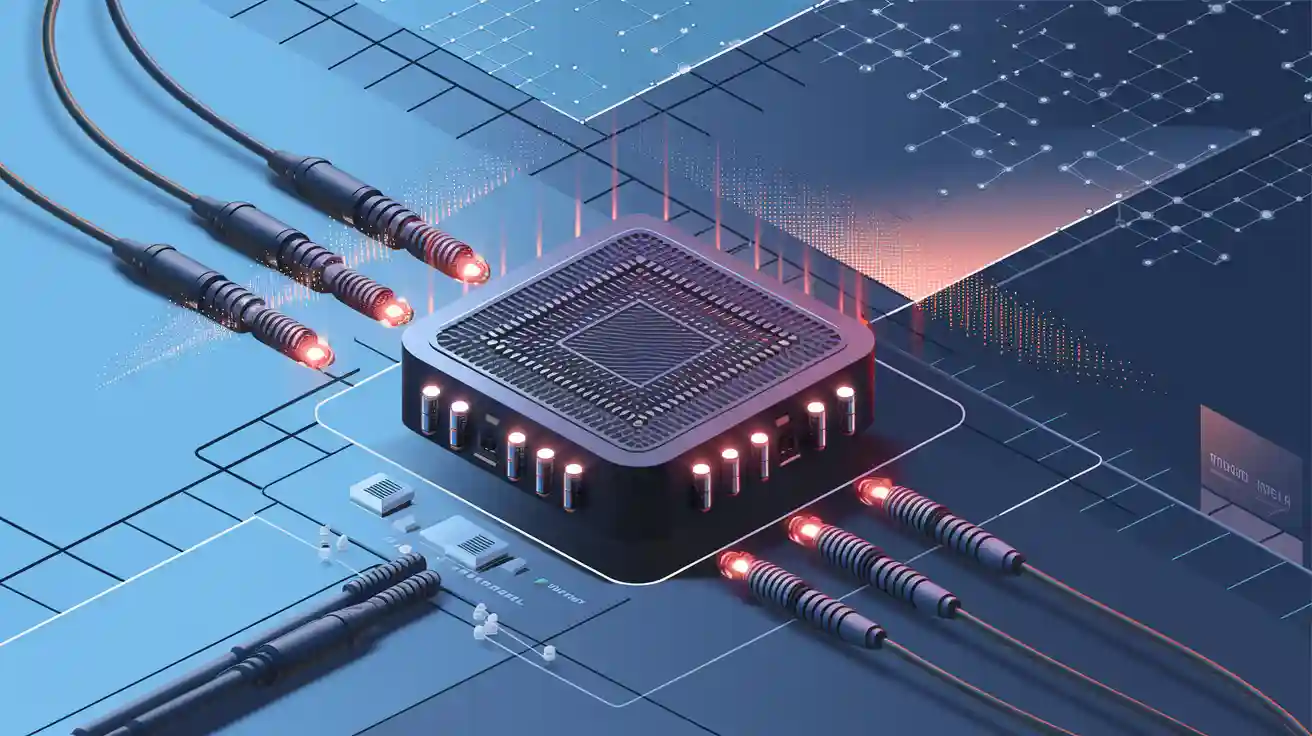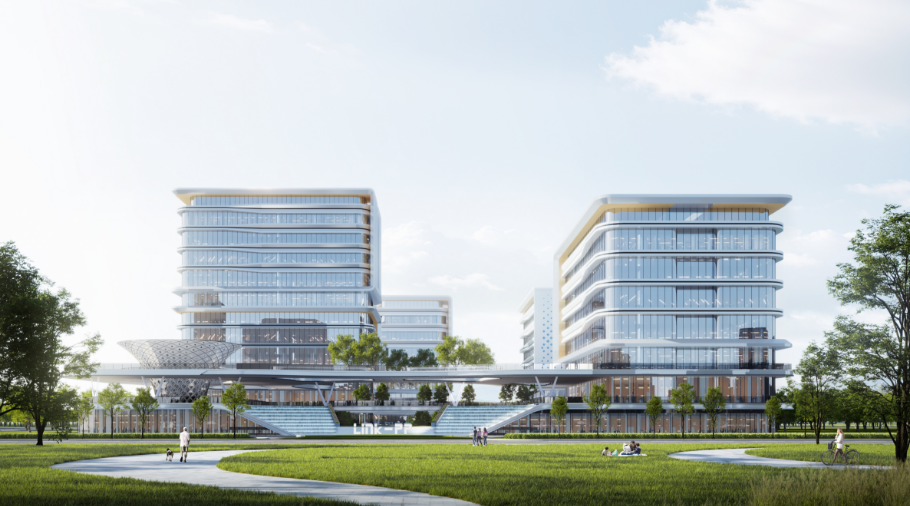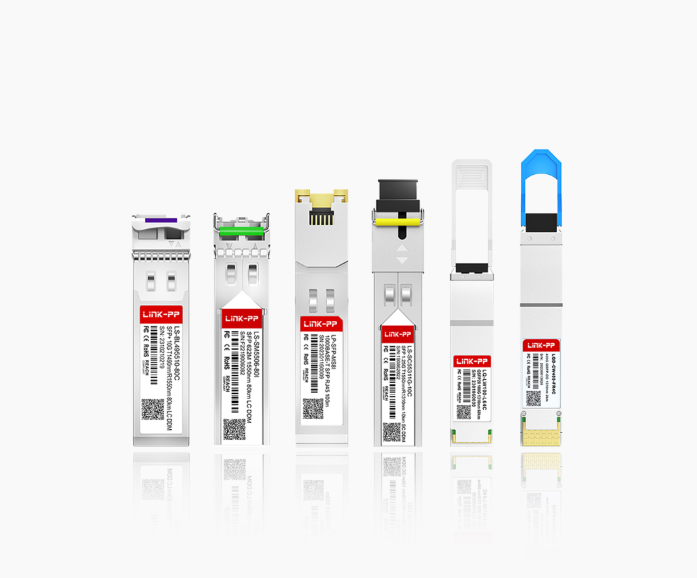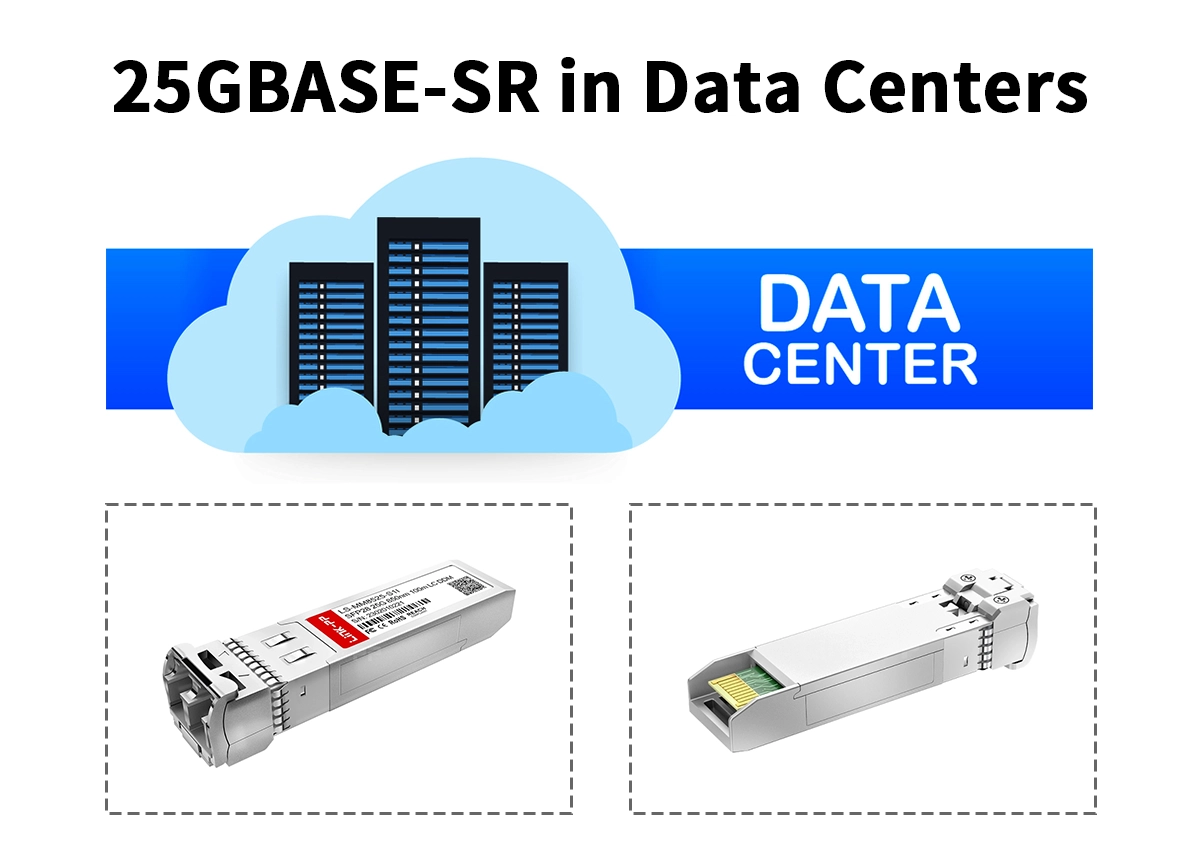
➡️ Introduction: Why 25GBASE-SR Matters
25GBASE-SR optical modules have become a foundational building block for server-to-switch connectivity in modern hyperscale and enterprise data centers. Built around the SFP28 form factor and optimized for short-reach multimode fiber (MMF), these modules deliver 25 Gbps per lane—making them the natural successor to 10G links and a critical step toward scalable 100G and 400G fabrics.
Designed for high-density environments, 25GBASE-SR strikes an excellent balance between bandwidth, power efficiency, upgrade simplicity, and cost.
➡️ Standard & Form Factor
25GBASE-SR follows the IEEE 802.3 architecture for 25 Gbps Ethernet and is typically delivered in the SFP28 format. SFP28 modules maintain mechanical backward compatibility with SFP+ ports, while providing improved electrical signaling to support 25 Gbps operation.
Key characteristics:
Speed: 25 Gbps per lane
Connector: LC duplex
Fiber type: Multimode (MMF)
Wavelength: ~850 nm
Laser type: VCSEL
Interface: SFP28 host electrical interface
➡️ Optical Technology: 850 nm & VCSEL Design
25GBASE-SR modules transmit near 850 nm using VCSEL (Vertical-Cavity Surface-Emitting Laser) technology. VCSELs offer several advantages for short-reach data-center fabrics:
High modulation bandwidth for 25 Gbps signaling
Good coupling efficiency with MMF
Lower power consumption than many single-mode solutions
Lower cost and high manufacturing yield
The receive side typically uses a PIN photodiode for high-sensitivity detection at 25 Gbps.
➡️ Distance & Fiber Types (OM3 / OM4 / OM5)
Fiber Type | Typical Reach at 25G | Notes |
|---|---|---|
OM3 | ~70 m | Cost-efficient for short runs |
OM4 | ~100 m | Common choice for new installs |
OM5 | Up to ~150 m in select deployments | Enhanced wideband MMF |
Distance depends on fiber quality, connector loss, and whether forward error correction (FEC) is enabled on the host device.
➡️ Role in Data-Center Architecture
Top-of-Rack (ToR) & Leaf-Spine Fabrics
25GBASE-SR is widely used for ToR connections from server NICs to leaf switches. It delivers the bandwidth needed by CPU- and GPU-rich compute nodes without changing physical cabling practices extensively.
Migration Path: 10G → 25G → 100G
25G deployments follow a natural evolution path:
Stage | Typical Lane Structure | Benefit |
|---|---|---|
1×10G | Legacy deployments | |
1×25G | Modern servers & leaf switches | |
4×25G | Uses the same 25G lanes for uplinks |
This alignment simplifies optical-fabric scaling and ensures a smooth upgrade strategy.
➡️ Performance & Interoperability Considerations
FEC & Link Reliability
Many switches and NICs rely on RS-FEC to extend reach and maintain low BER (bit-error-rate). Confirm whether your platform requires FEC for maximum distance.
Power & Thermal Design
SFP28 optics are energy-efficient, but dense switch ports still require proper airflow planning. Operators should verify transceiver power ratings and chassis thermal limits.
Digital Diagnostics
Most 25GBASE-SR modules support DOM/DDM, enabling monitoring of temperature, optical power, bias current, and voltage—useful for troubleshooting and predictive maintenance.
➡️ Deployment Best Practices
1. Use the Correct Fiber Grade
For fresh deployments, OM4 offers ideal margin and lifecycle value. OM3 remains viable for short intra-rack or adjacent-rack distances.
2. Clean & Inspect Connectors
Dust and contamination cause loss and errors—inspection and cleaning should be standard practice in every installation.
3. Verify Compatibility
SFP28 modules are mechanically compatible with SFP+ cages, but full 25G support depends on host firmware and switch vendor policy. Always validate compatibility.
➡️ Key Use Cases
High-density server racks (compute, virtualization, AI clusters)
Leaf-spine data-center fabrics
Edge and micro data centers
Telecom access and 5G fronthaul segments when MMF applies
➡️ Example Product: LINK-PP SFP28 25GBASE-SR
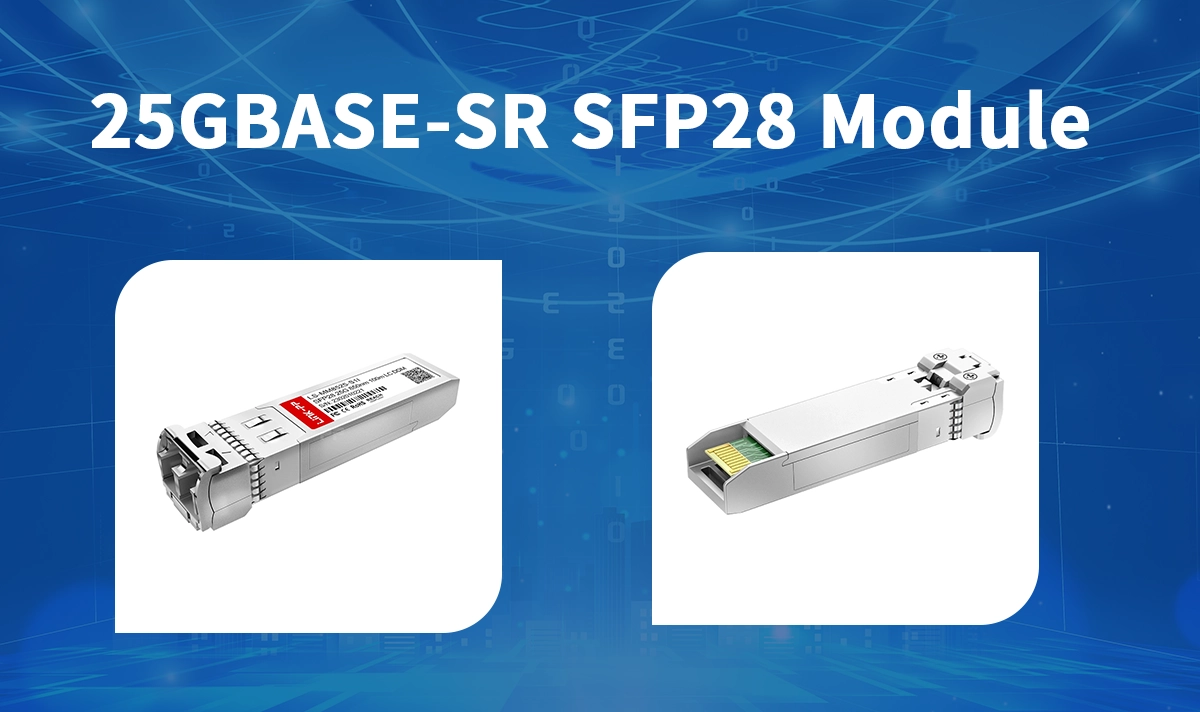
For industrial-grade and cloud deployments, the LINK-PP LS-MM8525-S1I SFP28 25GBASE-SR module provides:
25 Gbps lane rate
850 nm VCSEL transmitter
LC duplex interface
OM3/OM4 reach up to ~70 m / ~100 m
Digital diagnostics monitoring (DOM)
Industrial-grade temperature options
➡️ FAQ
Is 25GBASE-SR backward compatible with SFP+?
Physically yes, but 10G devices cannot read a 25G optical signal. The host platform must support 25 Gbps.
Should I choose OM3 or OM4?
OM3 is cost-effective for shorter runs; OM4 is recommended for new installations due to better margin and reach.
➡️ Conclusion
25GBASE-SR delivers an efficient, scalable method to connect servers and leaf switches in high-density modern data centers. With 850 nm VCSEL optics, low power consumption, and support for OM3/OM4 MMF, it enables a clean upgrade path from 10G and provides the optical foundation for 100G (4×25G) aggregation and beyond.
For reliable, industrial-grade connectivity, LINK-PP’s 25GBASE-SR SFP28 module offers performance and interoperability tailored to modern cloud and enterprise networks.


